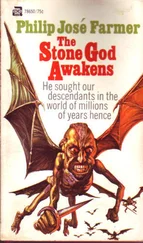— Watch what you say. You Sikhs have to be twice as loyal as the rest of us now.
The Rajput spoke with sympathy, but his words were met with a string of curses. In Lahore, a conspiracy trial was under way for almost three hundred men — most of them Sikhs — accused of trying to start a rebellion in the British Indian Army, backed by the Germans. The supervising nurse had said to Qayyum, If a whisper of doubt should attach itself to any of the soldiers here because of this wicked plot I’ll go to Lahore, and hang the conspirators myself. He had found himself imagining an embrace with the old lady. The conspiracy itself, which never had any real chance of success, wasn’t as unsettling for Qayyum as was the fact that some of the sepoys in the Pavilion had already started to use the name ‘Kirpal Singh’ to mean an informer, a double-dealer, one who couldn’t be trusted. Kirpal Singh, the man who had informed the English of the plot and sent his fellow Sikhs to prison and soon — it was inevitable — the firing squad.
One of the Indian doctors from the Pavilion, the one on the night shift, was walking towards them along the seafront. Qayyum called him over, and asked about the nurses. The doctor spread his hands to indicate the strange workings of the English and said their withdrawal had followed the outrage created in official circles by a newspaper photograph of a nurse standing beside the bed of Khudedad Khan, the first Indian to receive a Victoria Cross.
Neither the Rajput nor Qayyum knew what to say about that. All three men stood silently watching the Sikh who had the end of his empty sleeve between his teeth, pulling it taut, and was dragging the sharp point of a pebble back and forth against the fabric just below the stump of his arm. The word ‘dishonour’ entered Qayyum’s mind and would not be dislodged.
Qayyum, I am here, in Brighton. At Kitchener Hospital. Don’t worry, it is bullet wounds in places where the flesh will heal and soon they will send me back to France. But I am here now, in Brighton. I pray to Allah you haven’t left for Peshawar yet. Kalam Khan, Sepoy.
He walked through Brighton’s streets, the sunshine sharp. Previously he had only walked the short distance from the Pavilion to the seafront in the early morning. Now he gathered a group of curious children who followed after him whistling ‘It’s A Long Way To Tipperary’ until he turned round and, expression blank, mimed playing a flute. One of the nurses had told him this was a useful way to make a crowd of children disperse and, astonishingly, it worked, though why they screamed and ran he didn’t know. On Queen’s Park Road a car stopped and the driver offered to take him to the hospital, but he was enjoying the grand houses and the quiet street and the feeling of anticipation with which he was walking towards Kalam so he thanked the man and continued on. Further along the road an Englishman with large whiskers tipped his hat to Qayyum, and his wife murmured, Thank you. His strides lengthened, the sun flung its warmth at him, extravagantly. He was still Qayyum Gul, despite everything.
Kitchener Hospital was a vast building, four storeys high with a clock tower against which Qayyum checked his wristwatch, stopping to wind it up and move the minute hand forward by a tiny degree. One of the doctors on the hospital ship to Brighton had strapped it onto his wrist, and no explanation was asked for or received. He would give it to Kalam, he decided as he slowly approached the gate, squinting at every open window to see if a familiar form might be leaning out of it, waiting. With his attention on the upper storeys he didn’t see the man in the sentry box and would have walked right through the open gate if the man — a military policeman — hadn’t commanded him to stop, and asked what he wanted.
— Lance-Naik Qayyum Gul. Here to see Sepoy Kalam Khan.
— No visitors allowed.
— What time I should come back?
— No visitors allowed.
— Because today is Sunday?
— No, because no visitors are allowed. Any day. Any time.
— My friend is in there. We were at Vipers. 40th Pathans.
— No. Visitors. Allowed.
— I am a lance-naik. 40th Pathans.
— That won’t stop me from arresting you if you don’t move along.
A car, with three Indians and an Englishman in it, drove out of the open gate and stopped next to the sentry box. What’s going on? the English officer said in Urdu, and Qayyum, immeasurably relieved, saluted and said there was some miscommunication, his English wasn’t very good, could the officer please tell the MP he was here to visit one of the sepoys under his command.
— Sorry, Lance-Naik, hospital rules. No visitors.
— Can you find out if he’s well enough to come out? I don’t know how bad the injuries are but maybe he can walk, or use a wheelchair.
— No Indian personnel, except NCOs, are allowed out of the hospital grounds. Except on supervised marches.
— Sir?
— Look, Lance-Naik, I didn’t make the rules.
— But how do I see him?
— I’m afraid you don’t.
— But we were at Vipers together. Sir? We fought at Vipers. He was at Aubers Ridge. He was under my command. 40th Pathans.
— I understand what you’re trying to say. I’m extremely sorry, there’s nothing I can do, not even for men who were at Ypres.
Qayyum looked frantically at the three Indian NCOs in the car, two of whom had their heads turned away from him. The third — with the insignia of a naik — reached out of the car and touched his arm. Tell me his name, the naik said. I’ll make sure he knows you were here.
Qayyum tilted his head back, cupped his hands around his mouth and called out through the hospital gates as loudly as his lungs would allow:
— Kalam Khan!
His voice was cut off by the hand at his throat. The military policeman brought his face close to Qayyum, who could see the man’s eyeball, the yellowish tint of it, the blood vessels. What was he doing, this Englishman, young and able-bodied, standing outside a hospital keeping one soldier away from another?
— You are no one, Qayyum heard himself tell the Englishman.
— What did you just say?
The MP’s hand closed around Qayyum’s throat and Qayyum knew he could do it — he could strike an Englishman. But before that ‘could’ became ‘would’, the naik who had reached out towards him jumped out of the car, interposing himself between Qayyum and the MP, one hand on Qayyum’s chest.
— He’s only obeying rules, Lance-Naik. You need to leave.
The waves crashed over pebbles again — no, it was the gate closing, scraping the gravel beneath. The MP slid the bolt in place, and stood in front of it, arms crossed.
— Rules? Are there rules against saying a friend’s name?
Again he raised his voice, drawing it out from deep in his belly:
— Kalam! It’s me, it’s Qayyum. Kalam!
The naik rested a finger just beneath Qayyum’s good eye, the pad of his finger caressing the skin. Qayyum’s voice stilled.
— Good man. Don’t cause any trouble now.
Leaning in closer, he whispered, Even I can’t go out unsupervised. We are prisoners here. You will make it worse for your friend.
That last sentence made it impossible to do anything but leave. When Qayyum returned to the Pavilion he saw, as if for the first time, the barbed wire around the walls, the sentries at the gate, the boarded-up gaps in the hedge. For the briefest of moments he believed he was in a German prisoner-of-war camp, with English-speaking men and women all around — an elaborate plan to turn the Indian soldiers against their King-Emperor.
But no, this was England and Kalam Khan was locked up in a hospital waiting for Qayyum to come to him as he had gone to Qayyum across a field of moonlight and dead men and German gunners. Tomorrow, Qayyum would find a way to see him, even if it meant petitioning the King-Emperor himself.
Читать дальше












